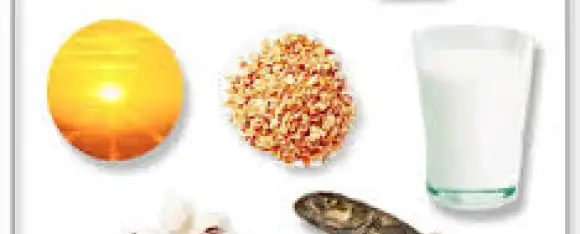-
AllAnytime Fitness Gym Art Beer Of The Week Blog Bus Fares Bus Service Business Business Expo C2C Care Care Home Charity Children Christmas Cinema City Status Cliffs Pavilion Cliffs Pavilion Review Cocktail Recipes College Community Competition Construction Coronation Coronavirus Dannielle Emery Design Easter Education Electoral changes Leigh on sea Emma Smith Employment Emsella Chair Environment Essex & Suffolk Water News Essex Police Essex Wildlife Trust News Events Family Fun Fashion Festival Film Finance Fitness Food Food & Drink Football Foulness Bike Ride Fresh Face Pillow Company Gardening General Election Hair & Beauty Halloween Harp Havens Havens Hospice Havens Hospices Havens Hospices Health & Fitness Health & Beauty Health & Fitness Healthwatch Southend Historicaleigh History Holidays Housing Indian Indirock Jubilee Karen Harvey Conran Kids Kids Blogs Kids Competitions Kids Reviews Lazydays Festival Legal Legal Eagle Leigh Art Trail Leigh Folk Festival Leigh Library Leigh On Sea Finds Leigh Road Leigh Town Council Leigh Town Council Press Release Leigh on Sea Leigh on Sea Sounds Leigh on sea Folk Festival Leigh on sea Marathon Leigh on sea Town Council Leigh on sea man breaks marathon record Leigh on sea news Lifestyle Livewell Southend Press Release LoS Shop London London Southend Airport Los Shop Marathon Melinda Giles Mortgage Angel blog Mortgages Motherofalloutings Mughal Dynasty Music My Mortgage Angel MyLoS NHS News News Newsletter Offers Outfit Of The Week Palace Theatre Parenting Parking Pets Picture Of The Week Pier Politics Press Release Press Release Southend City Council Professional Property Property Of The Week RSPCA Ray Morgan Re:loved Recipes Recycling Restaurant Restaurant Review Restaurants Review Roads Rotary Club Royal Hotel Royal Visit SAVS Schools Seafront Shopping Shows & Music Review Shows & Music Shows & Music Review Southend Southend Airport Southend Borough Council Press Release Southend City Bid News Southend City Council Southend City Council Press Release Southend City Council Press Release Southend Community Safety Southend Hospital News Southend In Sight Southend In Sight Southend In Sight Press Release Southend on Sea Sport The Mortgage Mum The One Love Project The Ship Hotel Theatre Theatre Blog Theatre Review Theatre review Transport Travel Travel Veolia Village Green Volunteer Weddings Whats On c2c
Vitamin D

This week has been quite a shock to the system – who would believe the weather would change so dramatically after such a fantastic summer…the temperatures must have dropped at least 15 degrees overnight. However, with the sun shining almost every day for the last 10 weeks, as long you have spent a good deal of time outside enjoying the rays, whether walking, on the beach, gardening or just pottering to the shops, your body will have absorbed plenty of Vitamin D.
Vitamin D is known as the sunshine vitamin as it is produced by the skin when exposed to sunlight. It helps our bones absorb calcium and can protect against osteoporosis and muscle weakness. Studies have also shown that Vitamin D has a significant impact on our immune systems and therefore the body’s ability to fight infection, which is all important as we go into the winter and the dreaded flu virus and common cold start to lurk! Research is now showing that there is a link between low levels of Vitamin D and some chronic conditions such as heart disease, stoke, diabetes, multiple sclerosis and some cancers.
Good levels of Vitamin D are also important for improving sleep and for reducing the effects of Seasonal Affective Disorder (SAD). SAD usually kicks in when the clocks go back and we wake up to dark mornings and the nights close in. SAD makes you feel very down, with poor energy levels. You might find it hard to get up in the morning and some people can feel really depressed. You may crave carbohydrates too, which compounds the feeling of lethargy. So why does Vitamin D make us feel happy too?
Vitamin D supports serotonin and dopamine production – I call them the ‘happy hormones’ as they are integral to our feelings of happiness. Most antidepressant medications work by modulating serotonin and dopamine activity in the brain, so absorbing plenty of this wonderful vitamin during the summer months is vital to protect ourselves against the effects of SAD by ensuring our brains can produce sufficient serotonin and dopamine throughout the winter.
So if the sun isn’t shining, we can get Vitamin D from the following foods: oily fish (salmon, tuna, mackerel, sardines, trout), dairy products (milk, cheese, yogurt), eggs and mushrooms. If you find it difficult to include these foods in your diet on a daily basis, it would be wise to take a Vitamin D supplement. Do be supplement savvy though….there are lots of supplements on the market, including supermarket brands, which contain very little of the essential element/vitamin and are combined with cheap fillers, such as calcium carbonate (chalk), so the reality is your body cannot absorb them well. It is always a better option to buy from a proper health shop and follow the dosage instructions provided. Greens Health foods in Rectory Grove, Leigh, sells high quality supplements from supplement companies which are renown for their health research.
Diana Herve BSc Hons, BANT, CHNC, BTLLS
ADD A COMMENT
Note: If comment section is not showing please log in to Facebook in another browser tab and refresh.
























